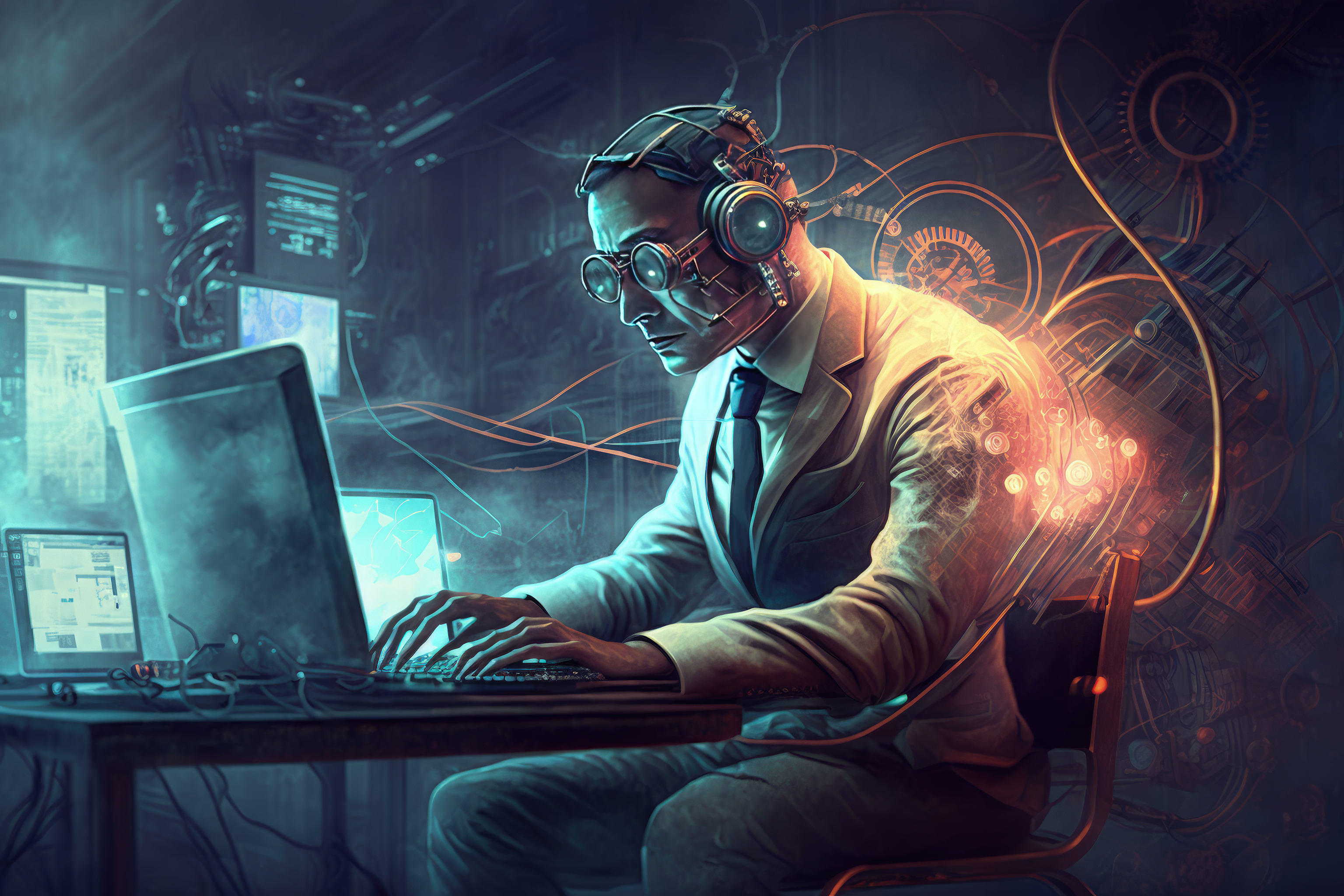The Future of Work: How Technology is Transforming the Way We Do Business
The future of work is an exciting, yet uncertain, prospect. The rapid advancement of technology is transforming the way we do business, and it’s clear that the next few decades will bring massive changes to the workplace. Digital tools and artificial intelligence (AI) like ChatGPT are among the most significant drivers of this change, and they are already having a profound impact on how companies operate and how we think about work.

Automations
One of the most notable ways that technology is changing the workplace is through automation. Automation refers to the use of technology to perform tasks that were previously done by humans. For example, many companies are using AI and machine learning algorithms to automate repetitive and mundane tasks, such as data entry and customer service. This not only saves companies time and money, but it also frees up employees to focus on higher-value tasks.
One example of automation in the workplace is the use of chatbots in customer service. Chatbots are computer programs that are designed to simulate human conversation, and they are becoming increasingly sophisticated. Many companies are now using chatbots to handle basic customer services inquiries, such as answering questions about order status and troubleshooting problems. This allows customer service representatives to focus on more complex issues and allows companies to provide 24/7 customer support.
Digital Tools
Another way that technology is changing the workplace is through the use of digital tools. Digital tools are software programs that help employees be more productive and efficient. For example, project management software like Notion, Asana, Trello, and Monday.com help teams to stay organized and on schedule by providing a central place to manage tasks and collaborate. Another example is Google Suite, a bundle of communication and productivity apps, including Gmail, Google Drive, Google Docs, and more, that enable employees to work together, regardless of their location. All of these digital tools are implementing AI in their workflow.
Artificial Intelligence (AI)
AI is also playing an increasingly important role in the workplace. AI-powered software can analyze large amounts of data, find patterns, and make predictions, which can help companies make better decisions and operate more efficiently. For instance, AI-powered chatbots can be used to help companies provide more personalized service, by tailoring recommendations to the user based on their browsing history and previous interactions. AI-enabled algorithms can also help in identifying the sentiment of customers or clients by analyzing the tone of their social media posts, email, or phone call.
In addition, AI is also making its way into HR function with the help of recruitment software. With the help of AI, the recruitment process can be streamlined, and it can help the company to select the most qualified candidates from a pool of applicants. AI algorithms are also increasingly used in employee training and development. With their help, companies can tailor training programs to the individual needs of employees, so that they can develop the skills they need to succeed in their roles.
Smart Working
Another way that technology is transforming the workplace is through remote work and telecommuting. With the rise of digital tools and online communication platforms, it is now possible for employees to work from anywhere in the world, as long as they have an internet connection. This is particularly relevant in the context of the COVID-19 pandemic, which has forced many companies to adopt remote work as a temporary measure. But this change has also demonstrated the benefits of remote work, such as increased flexibility and the ability to attract and retain talent from anywhere in the world.
Conclusion
In conclusion, technology is transforming the way we do business and the future of work is rapidly evolving. Automation, digital tools, and AI are the most significant drivers of this change. They are helping companies operate more efficiently and are freeing up employees to focus on higher-value tasks. As a result, the workplace is becoming more flexible and more global.
Come join me on Medium to listen and interact with my article. Let’s connect and continue the conversation there.
Latest Articles:
-
When Rome Whispers: A Sunset Journey Through Time
-
Rome’s Best-Kept Secrets: Hidden Gems Only Locals Know About
-
Rome: The Eternal City - Complete Guide
-
Rome in 3 Days: The Ultimate Itinerary for you!
-
Naruto: Review of the first Manga
-
Top 7 Free AI Certifications You Can Start Today
-
Guide to Snow (Winter) Photography
-
A Brief Guide to Financial Freedom
-
How to Become a Content Creator on TikTok
-
Embracing Vulnerability: Who is Brené Brown